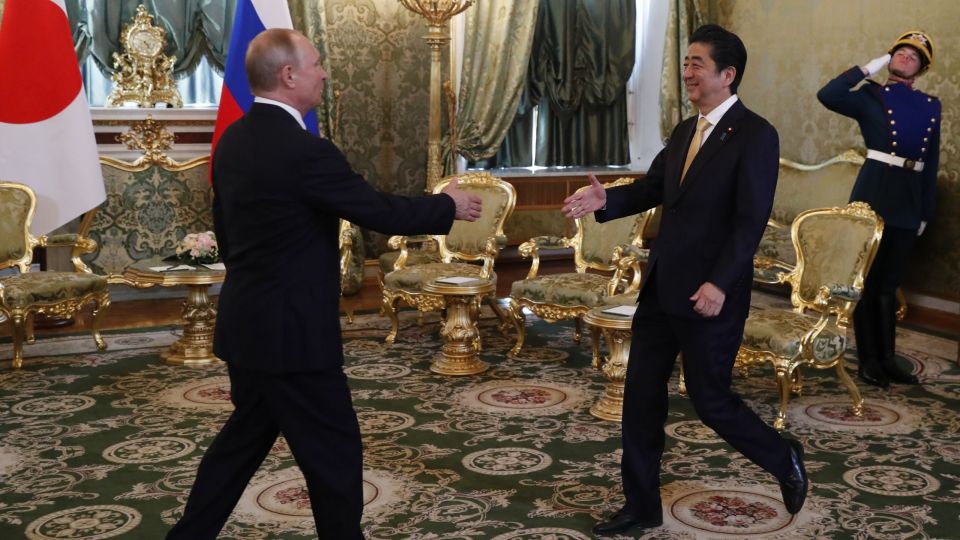May 30, 2018
Gains from Japan-Russia cooperation must lead to progress in territorial talks.
It is vital to squarely look at the reality in which no progress has been made in Japan-Russia territorial talks despite a political agreement earlier reached between the two nations regarding the matter. Tangible achievements should be accumulated in this respect through multifaceted efforts.
Prime Minister Shinzo Abe and Russian President Vladimir Putin have held talks in Moscow. Their meeting followed similar talks last November, and it was the first of its kind since Putin was reelected in the presidential election. The recent talks were the latest of a total of 21 meetings that they have held.
The two leaders agreed that private business operators engaged in such operations as the cultivation of marine products will be selected in connection with joint economic activities on the northern territories, followed by a plan to dispatch a research team there this summer. They also agreed that former island residents and others will visit graves there by plane this year, too. Such visits were realized for the first time last year.
“We have renewed our resolve to steadily advance toward a peace treaty,” the prime minister said at a joint press briefing.
The prime minister sought to draw a road map for resolving the territorial row at a summit meeting in December 2016. However, the reality is that there has been no smooth progress as desired since then.
The two nations face a stalemate regarding a “special system” on which joint economic activities will be based, because Russia has persisted in applying its domestic law to these activities. Accepting Russia’s assertion means acknowledging its sovereignty over the northern territories — something Japan cannot accept.
Apply project-based rules
The special system was proposed by Japan, which suggested creating a new scheme by studying an agreement that permits Japanese fishing operations in waters near the four islands and applying it to land-based activities. It may be advisable not to apply the system to the islands as a whole, but to consider devising a method by which the two countries would lay down a legal system regarding each project.
The current decline in U.S.-Russia relations is also throwing a shadow over the situation. Russia is wary about a situation in which U.S. forces may be stationed on the islands after the territories are returned to Japan. It is necessary for the government to convince Russia that the issue is a matter of Japanese sovereignty and gain understanding from that country.
By showing achievements that can be gained through bilateral cooperation, the prime minister must continue to persistently tell Russia that settling the territorial matter and concluding a peace treaty will benefit Russia.
Two years have passed since the prime minister proposed an eight-point economic cooperation plan, the central pillar of which would seek such goals as industrial promotion in the Russian Far East. A rehabilitation center has been completed in Vladivostok.
At the press briefing, Putin said, “Cooperation with Japan is smoothly developing.” It is important to promote confidence-building between the two nations through steady cooperation.
Russia has been subject to European and U.S. sanctions over such issues as its annexation of the Crimean Peninsula. Japan should urge Russia to act responsibly as a member of the international community.
North Korea’s denuclearization is an extremely important issue to Japan and Russia.
It was significant for the prime minister and Putin to agree on a policy of supporting a summit meeting between the United States and North Korea. The prime minister called on Putin for cooperation in resolving the abduction problem, and he gained understanding from the president.
Japan and Russia must continue to facilitate reciprocal communication in dealing with these issues.


